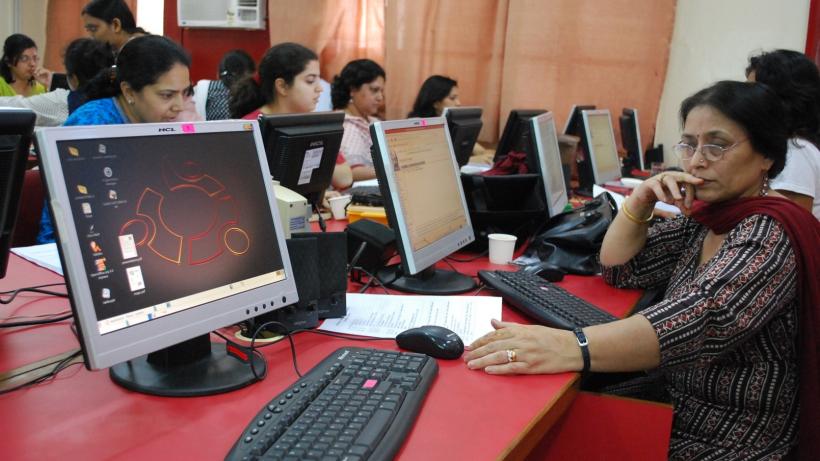
BREAD-IGC Virtual PhD Course, Spring 2022
Modules on Education; Credit, insurance, and risk; and Migration
The Bureau for Research and Economic Analysis of Development (BREAD), in collaboration with the International Growth Centre (IGC), is offering a virtual PhD non-credit course for the spring of 2022. This semester-long course covers education; credit, insurance, and risk; and migration. Future courses will cover other topics in development economics.
The spring 2022 course consists of three modules, each composed of 5-10 lectures. Together the modules constitute a full semester course. This course was organised by the BREAD Course Committee: Joe Kaboski (Notre Dame), Mark Rosenzweig (Yale), Chris Udry (Northwestern), and Dean Yang (Michigan).
The course is open and free of charge to all interested PhD students and economics faculty worldwide. Course materials (syllabus, lecture presentations, and recorded lectures) will be available after the end of each module on the IGC website.
Registered graduate students should have a faculty member from their university sponsor them (there is no financial cost associated with sponsorship).
Dates/time: The course has now ended, and all lecture materials are available below.
Questions? See answers to our most frequently asked questions.
Module 1: Education
This module examines the role of schooling in developing countries. We first look at evidence on why, where, and when schooling augments productivity, as well as what are the barriers to school attainment. We then cover topics such as school curriculum, school quality measurement, the use, and benefits of technology in schools, teacher incentives and performance, markets for public and private schools, methods for improving school quality, the role of information in school markets, and methods of allocating students among schools.
- Thursday, 27 January: Productivity of Schooling, Returns to Schooling - Mark Rosenzweig (Yale) Reading list, Lecture slides, Lecture recording
- Friday, 28 January: Barriers to School Attendance, Gender Differences - Mark Rosenzweig (Yale) Reading list (same as above), Lecture slides, Lecture recording
- Thursday, 3 February: Pedagogy/Curriculum and why schools (private and public) tend to fail - Esther Duflo (MIT) Lecture slides, Lecture recording
- Friday, 4 February: School Quality - Isaac Mbiti (University of Virginia) Reading list, Lecture slides, Lecture recording
- Thursday, 10 February: School Governance- Karthik Muralidharan (UC San Diego) Reading list, Lecture slides, Lecture recording
- Friday, 11 February: Technology in Education - Karthik Muralidharan (UC San Diego) Reading list (same as above) ,Lecture slides, Lecture recording
- Thursday, 17 February: School Markets 1 - Jishnu Das (Georgetown) Reading list, Lecture slides, Lecture recording
- Friday, 18 February: School Markets 2 - Asim Khwaja (Harvard) Reading list (same as above),Lecture slides, Lecture recording
- Thursday, 24 February: Centralised School Assignment, Information - Kehinde Ajayi (World Bank) Lecture slides, Lecture recording
- Friday, 25 February: School Choice, Sorting - Chris Nielson (Princeton) Lecture recording
Module 2: Credit, insurance, and risk
We examine financial markets in the context of development economics. We first discuss the empirical implications of simple models of the efficient allocation of risk, and the consequences of information, enforcement, and behavioural frictions for informal risk sharing, welfare, and production decisions. We cover the design, demand for, and impact of formal insurance. The role of savings in a risky environment is discussed next, and we consider both external and behavioural barriers to saving. The module concludes with discussions of microfinance, mobile money and digital finance, and insurance.
- Thursday, 3 March: Informal Risk Sharing: Efficient Allocations of Risk - Chris Udry (Northwestern) Reading list, Lecture slides, Lecture recording
- Friday, 4 March: Informal Risk Sharing: Barriers to Full Insurance - Abhijit Banerjee (MIT) Reading list (same as above) ,Lecture slides , Lecture recording
- Thursday, 10 March: The Impact of Formal Insurance - Lorenzo Casaburi (University of Zurich) Reading list, Lecture slides, Lecture recording
- Friday, 11 March: Demand for Insurance Products - Lorenzo Casaburi (University of Zurich) Reading list (same as above), Lecture slides, Lecture recording
*Please note the following 4 lectures will take place at an earlier London time (10:00-11:30 am ET/2:00-3:30 pm GMT) due to the time change in the US*
- Thursday, 17 March: Saving: Benchmark and External Barriers - Chris Udry (Northwestern) Lecture slides, Lecture recording
- Friday, 18 March: Saving: Behavioural Barriers - Pascaline Dupas (Stanford) Lecture recording
- Thursday, 24 March: Microfinance 1 - Emily Breza (Harvard) Lecture slides, Lecture recording
- Friday, 25 March: Microfinance 2 - Emily Breza (Harvard) Lecture slides, Lecture recording
*Lectures will resume at their normal London time (3:00-4:30 pm BST)*
- Thursday, 31 March: Mobile Money and Digitizing Transfers - Tavneet Suri (MIT) Reading list, Lecture slides, Lecture recording
- Friday, 1 April: Broader gains to Digitization? - Tavneet Suri (MIT) Reading list, Lecture slides, Lecture recording
Module 3: Migration
This module covers the economics of migration from the standpoint of developing countries. We first introduce a theoretical framework, and then discuss frontier research on internal and international migration. We cover the role of networks in migration, and topics related to migration and risk. The module concludes with recent economics research on migration-related development policy.
- Thursday, 7 April: Introduction, Framework, and Internal Migration - Melanie Morten (Stanford) Reading list, Lecture slides, Lecture recording
Featured speaker: Travis Baseler (Rochester) Lecture slides
- Thursday, 14 April: International Migration - Dean Yang (Michigan) Reading list, Lecture slides, Lecture recording
Featured speaker: Gaurav Khanna (UCSD) Reading
- Thursday, 21 April: Migration and Networks - Kaivan Munshi (Yale) Lecture recording
Featured speakers: Josh Blumenstock (Berkeley), Maria Caballero (Carnegie-Mellon)
- Friday, 29 April: Migration and Risk - Mushfiq Mobarak (Yale) Lecture recording
Featured speaker: Marieke Kleemans (UIUC) Reading, Mahesh Shrestha (World Bank) Reading 1, Reading 2, Lecture slides
- Thursday, 5 May: Migration Policy - David McKenzie (World Bank) Reading list, Lecture slides, Lecture recording
Featured speaker: Tijan Bah (Navarra) Lecture slides, Caroline Theoharides (Amherst) Lecture slides

